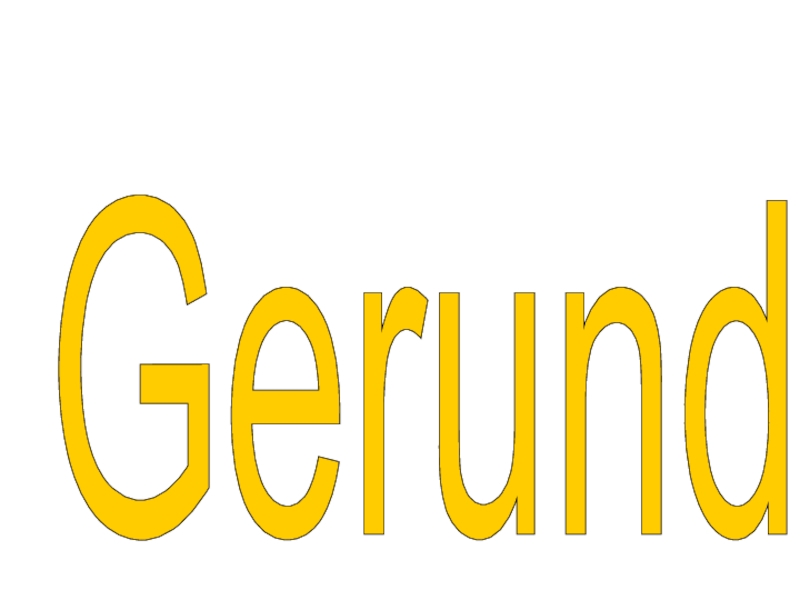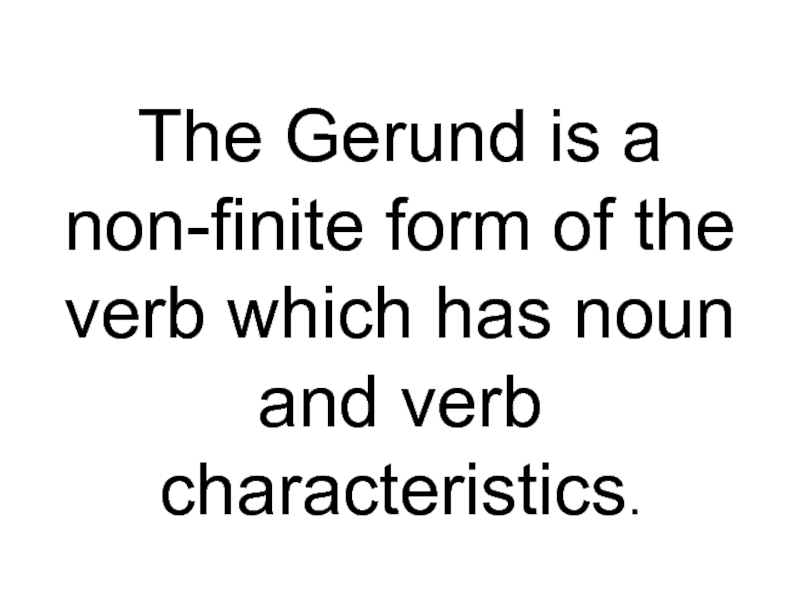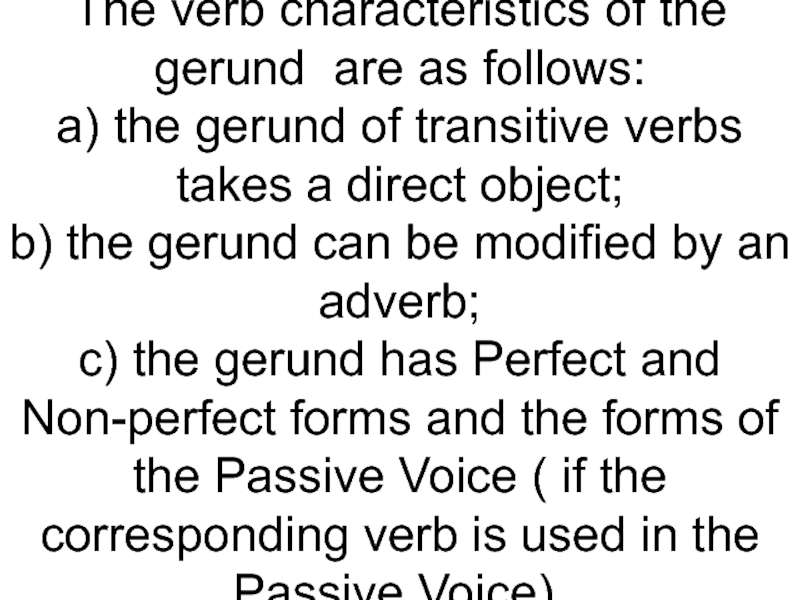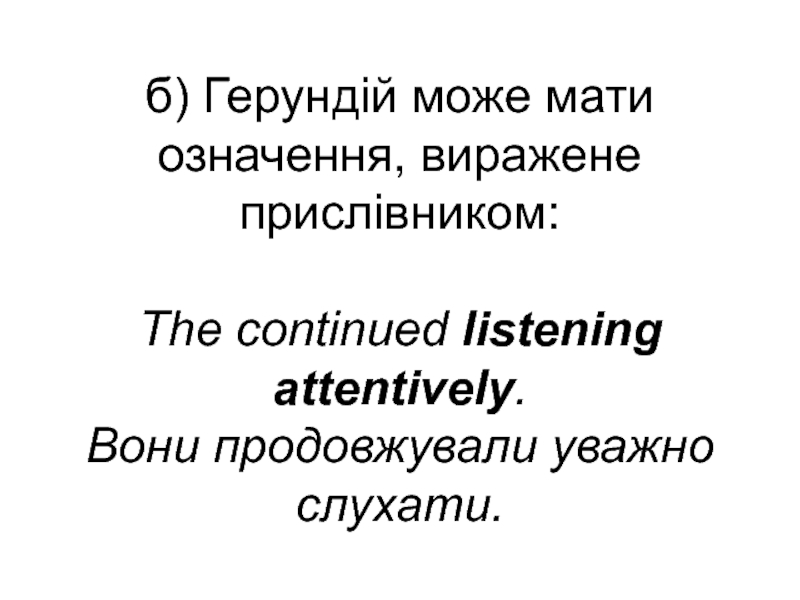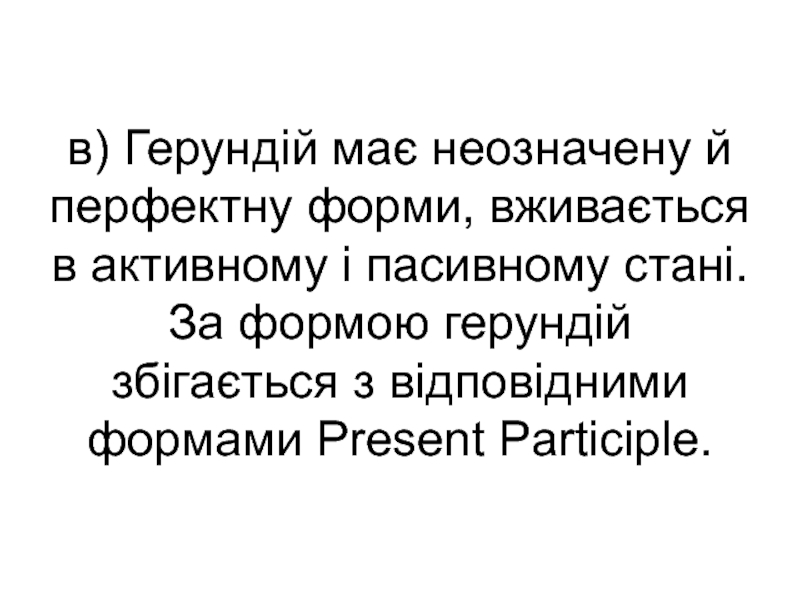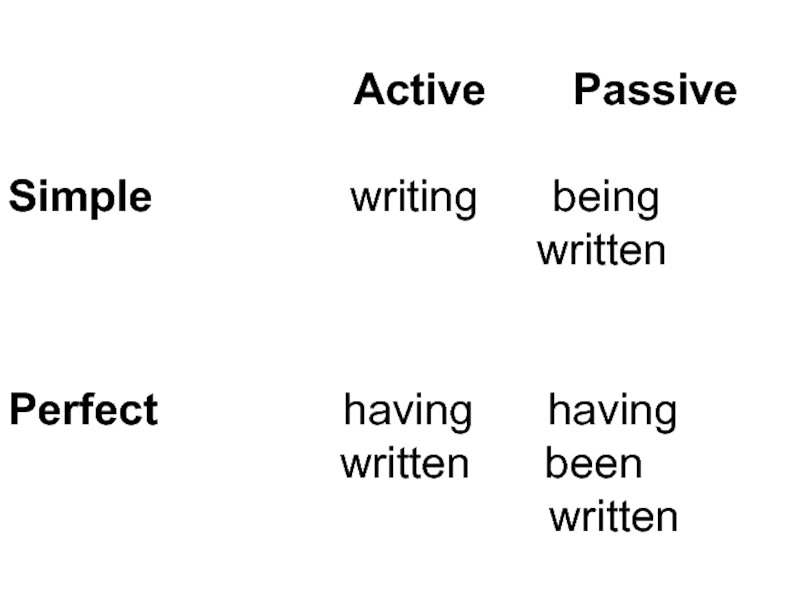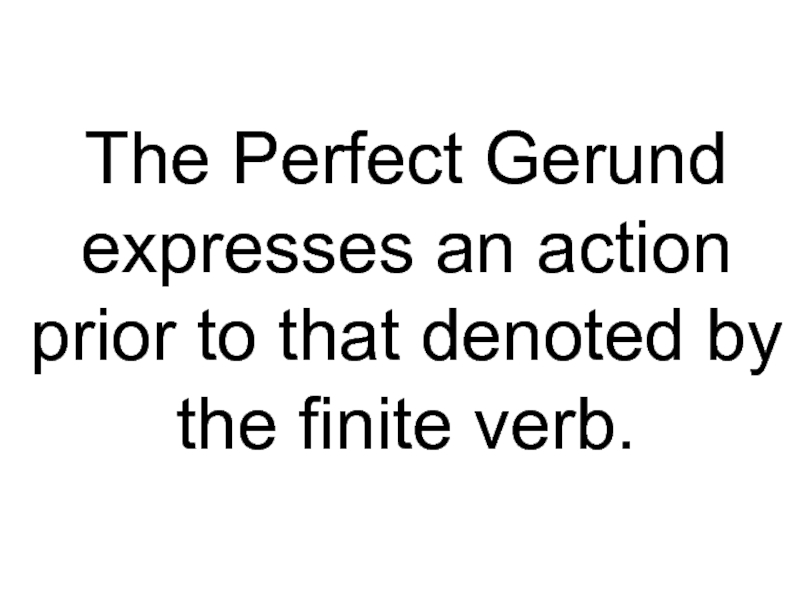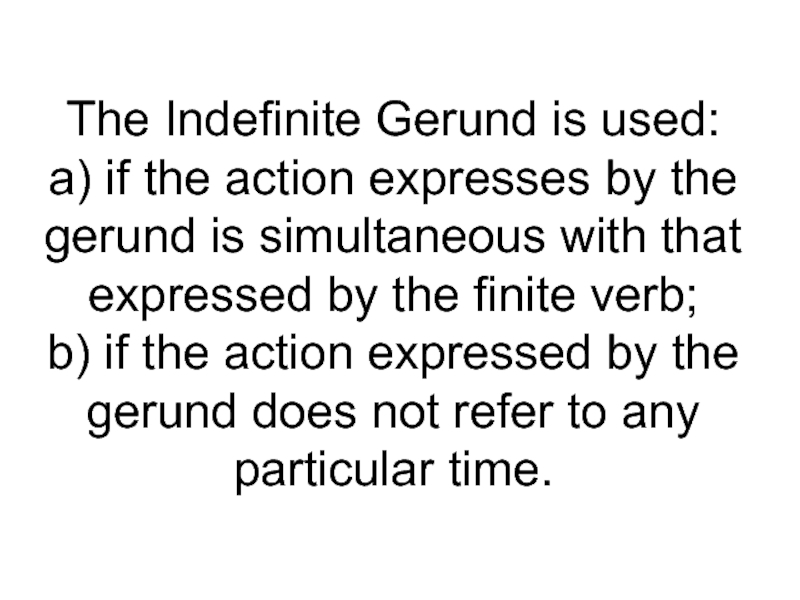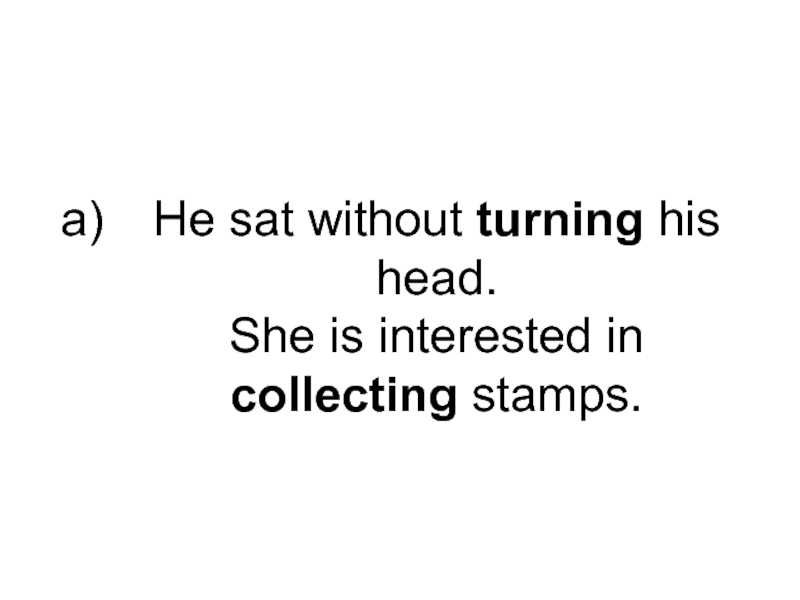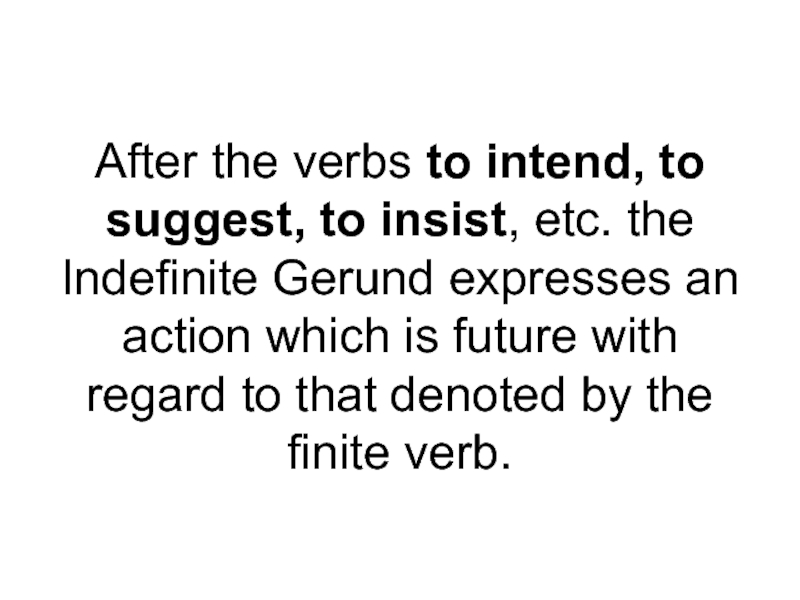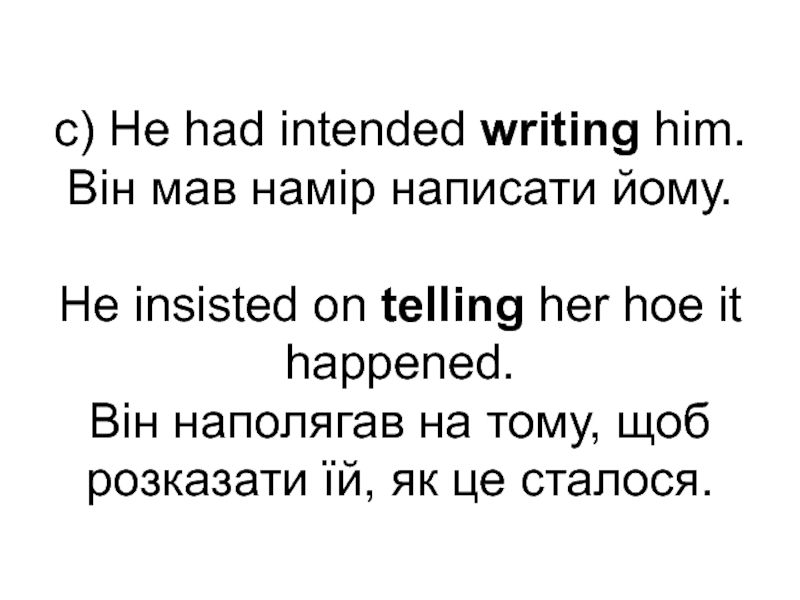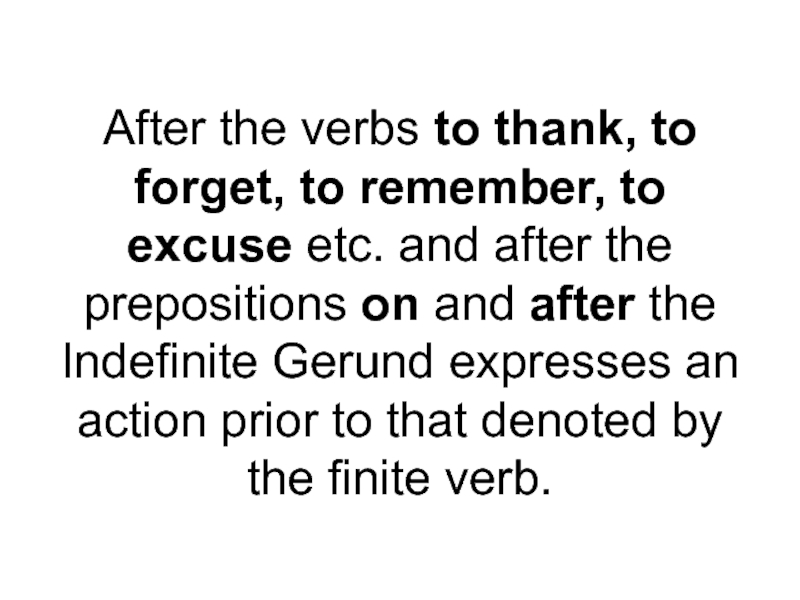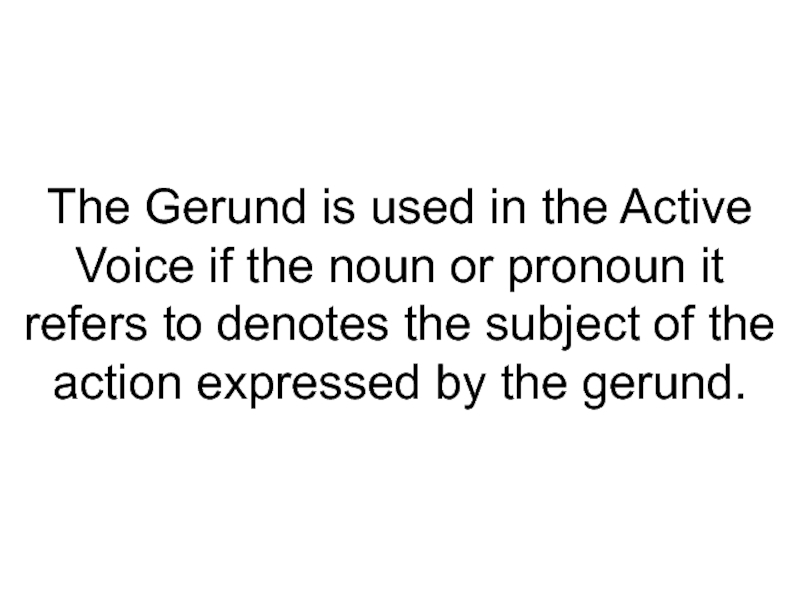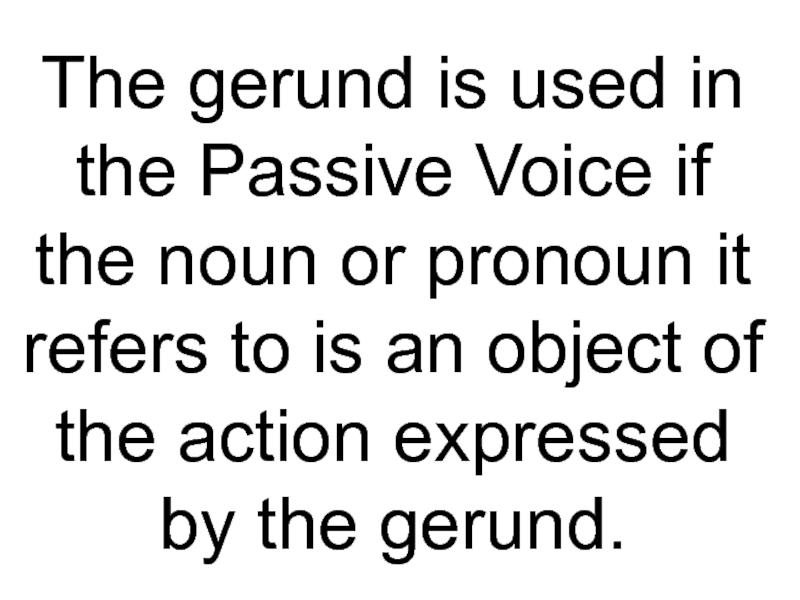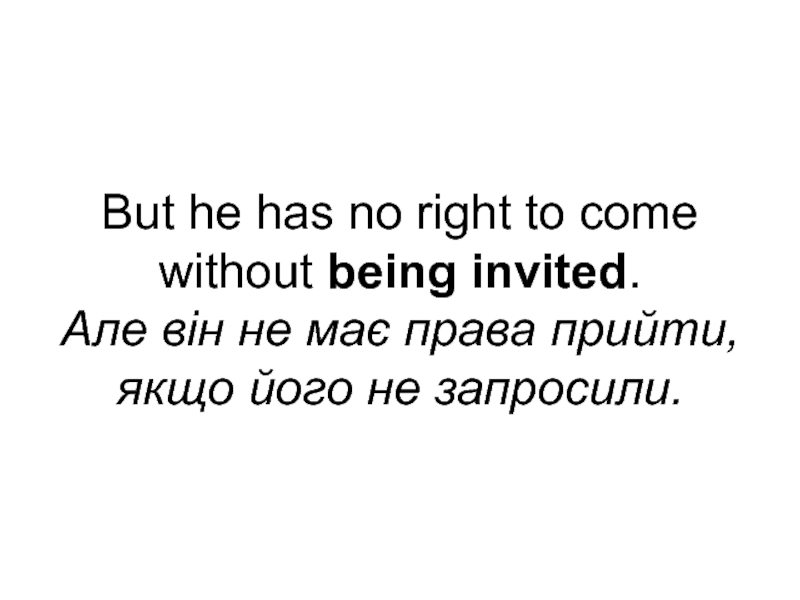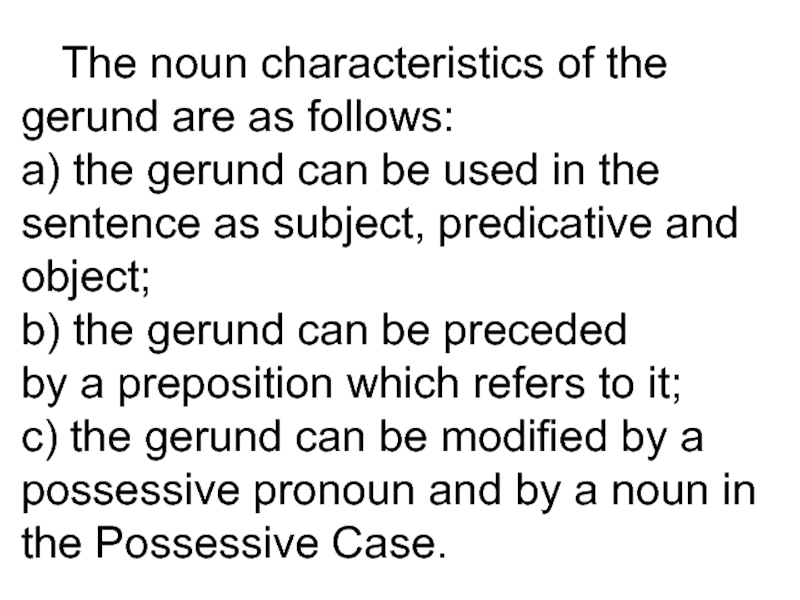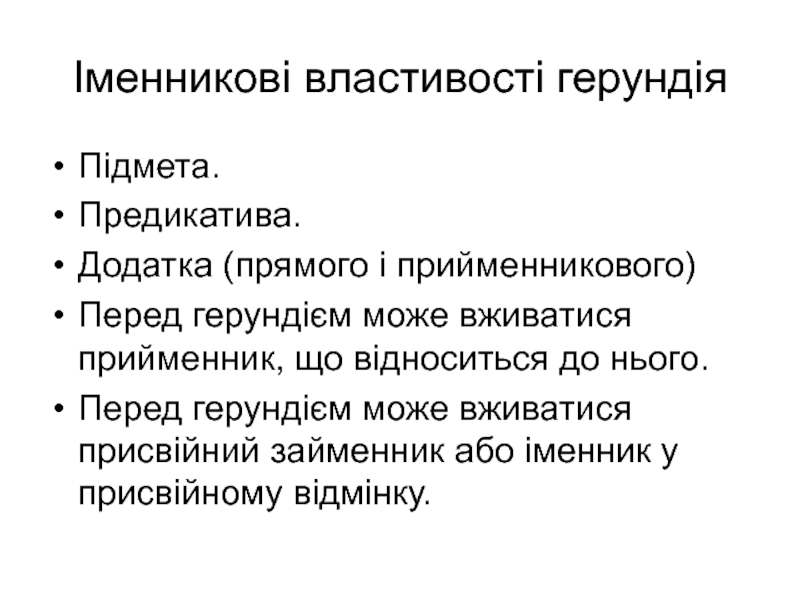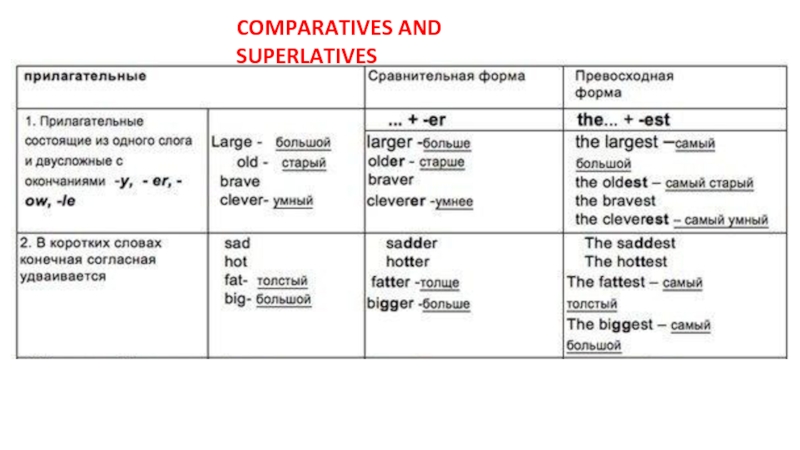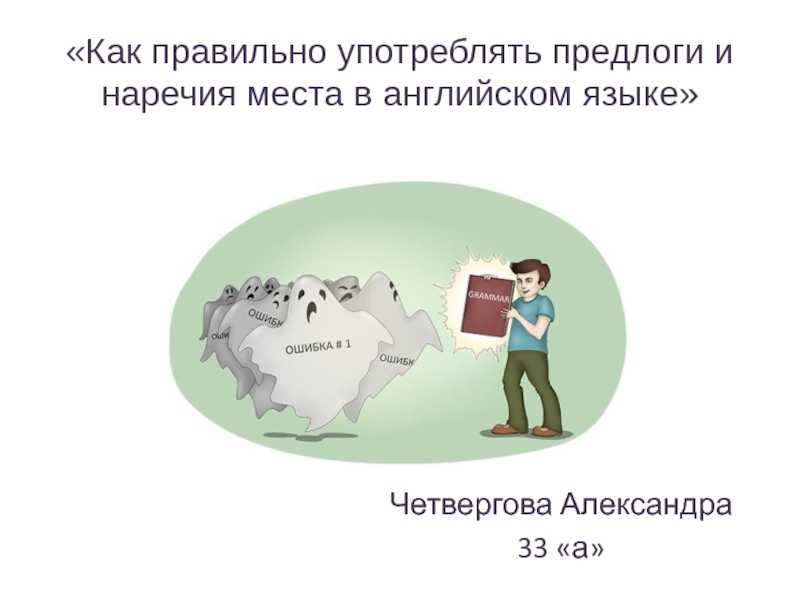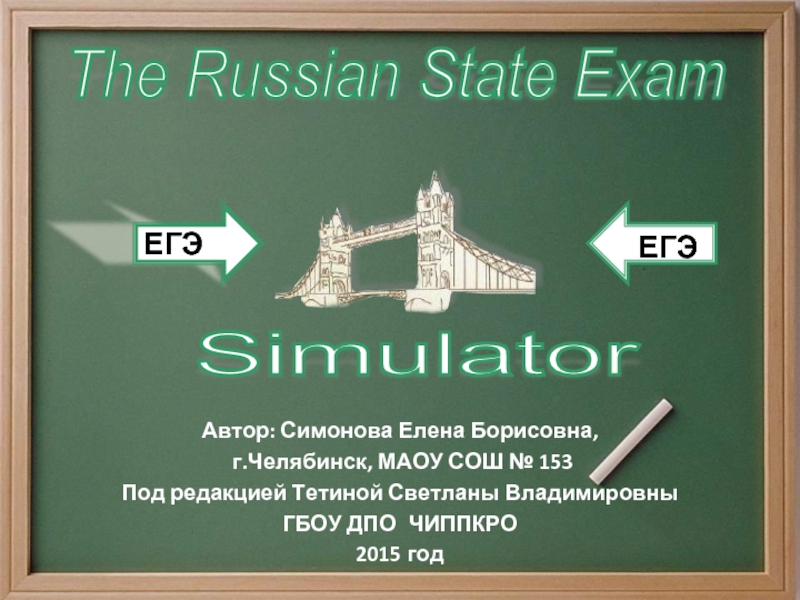- Главная
- Разное
- Дизайн
- Бизнес и предпринимательство
- Аналитика
- Образование
- Развлечения
- Красота и здоровье
- Финансы
- Государство
- Путешествия
- Спорт
- Недвижимость
- Армия
- Графика
- Культурология
- Еда и кулинария
- Лингвистика
- Английский язык
- Астрономия
- Алгебра
- Биология
- География
- Детские презентации
- Информатика
- История
- Литература
- Маркетинг
- Математика
- Медицина
- Менеджмент
- Музыка
- МХК
- Немецкий язык
- ОБЖ
- Обществознание
- Окружающий мир
- Педагогика
- Русский язык
- Технология
- Физика
- Философия
- Химия
- Шаблоны, картинки для презентаций
- Экология
- Экономика
- Юриспруденция
The Gerund is a non-finite form of the verb which has noun and verb characteristics презентация
Содержание
- 1. The Gerund is a non-finite form of the verb which has noun and verb characteristics
- 2. The Gerund is a non-finite form of the verb which has noun and verb characteristics.
- 3. reading listening preparing
- 4. The verb characteristics of the gerund are
- 5. Герундій має такі дієслівні властивості: а) Герундій
- 6. б) Герундій може мати означення, виражене прислівником:
- 7. в) Герундій має неозначену й перфектну форми,
- 9. The Perfect Gerund expresses an action prior to that denoted by the finite verb.
- 10. Перфектна форма герундія виражає дію, що передує
- 11. The Indefinite Gerund is used: a) if
- 12. He sat without turning his head. She is interested in collecting stamps.
- 13. b) Seeing is believing.
- 14. After the verbs to intend, to suggest,
- 15. c) He had intended writing him. Він
- 16. After the verbs to thank, to forget,
- 17. Thank you for helping me. Спасибі, що
- 18. The Gerund is used in the Active
- 19. Mary could not help laughing. Мері не могла не засміятися.
- 20. The gerund is used in the Passive
- 21. But he has no right to come
- 22. The noun characteristics of the gerund are
- 23. Іменникові властивості герундія Підмета. Предикатива. Додатка (прямого
- 24. Smoking is harmful. His hobby
Слайд 4The verb characteristics of the gerund are as follows: a) the gerund
of transitive verbs takes a direct object;
b) the gerund can be modified by an adverb;
c) the gerund has Perfect and Non-perfect forms and the forms of the Passive Voice ( if the corresponding verb is used in the Passive Voice).
Слайд 5Герундій має такі дієслівні властивості: а) Герундій перехідних дієслів вживається з прямим
додатком:
I like reading books.
Я люблю читати книжки.
She began preparing food.
Вона почала готувати їжу.
Слайд 6б) Герундій може мати означення, виражене прислівником: The continued listening attentively. Вони продовжували
уважно слухати.
Слайд 7в) Герундій має неозначену й перфектну форми, вживається в активному і
пасивному стані.
За формою герундій збігається з відповідними формами Present Participle.
Слайд 10Перфектна форма герундія виражає дію, що передує дії, вираженій дієсловом-присудком речення.
Thank you for having helped me.
Спасибі, що допомогли мені.
Слайд 11The Indefinite Gerund is used: a) if the action expresses by the
gerund is simultaneous with that expressed by the finite verb;
b) if the action expressed by the gerund does not refer to any particular time.
Слайд 14After the verbs to intend, to suggest, to insist, etc. the
Indefinite Gerund expresses an action which is future with regard to that denoted by the finite verb.
Слайд 15c) He had intended writing him. Він мав намір написати йому. He insisted
on telling her hoe it happened.
Він наполягав на тому, щоб розказати їй, як це сталося.
Слайд 16After the verbs to thank, to forget, to remember, to excuse
etc. and after the prepositions on and after the Indefinite Gerund expresses an action prior to that denoted by the finite verb.
Слайд 17Thank you for helping me. Спасибі, що допомогли мені. I don't remember
seeing either of them.
Я не пам’ятаю, щоб я бачив кого-небудь з них.
On receiving the telegram we went to the station.
Одержавши телеграму, ми поїхали на вокзал.
Слайд 18The Gerund is used in the Active Voice if the noun
or pronoun it refers to denotes the subject of the action expressed by the gerund.
Слайд 20The gerund is used in the Passive Voice if the noun
or pronoun it refers to is an object of the action expressed by the gerund.
Слайд 21But he has no right to come without being invited. Але він
не має права прийти,
якщо його не запросили.
Слайд 22 The noun characteristics of the gerund are as follows: a) the gerund
can be used in the sentence as subject, predicative and object;
b) the gerund can be preceded
by a preposition which refers to it;
c) the gerund can be modified by a possessive pronoun and by a noun in the Possessive Case.
Слайд 23Іменникові властивості герундія
Підмета.
Предикатива.
Додатка (прямого і прийменникового)
Перед герундієм може вживатися прийменник, що
відноситься до нього.
Перед герундієм може вживатися присвійний займенник або іменник у присвійному відмінку.
Перед герундієм може вживатися присвійний займенник або іменник у присвійному відмінку.
Слайд 24 Smoking is harmful. His hobby is collecting stamps. He likes talking
to me.
She is fond of painting.
Nobody thought of going to bed.
Don't fear my forgetting her.
